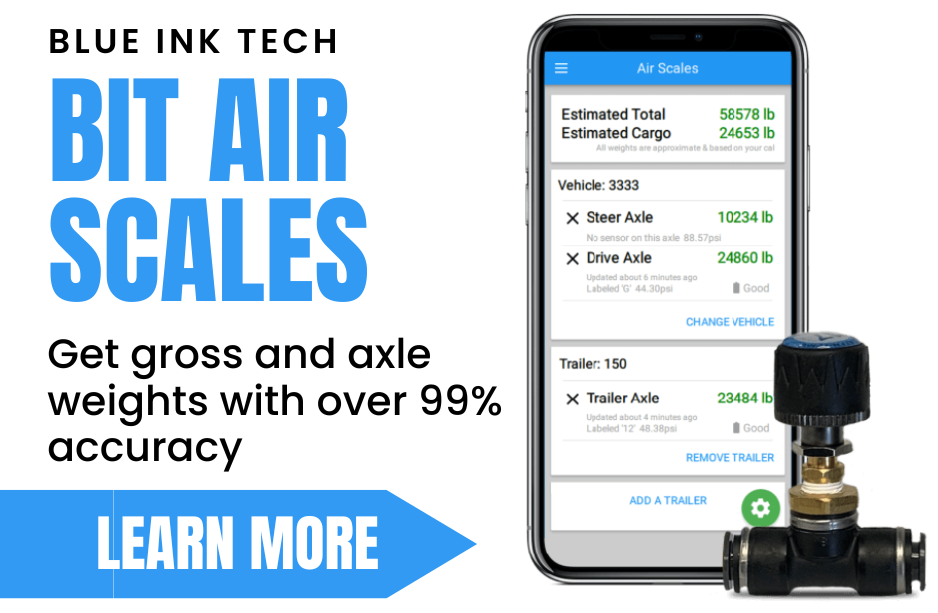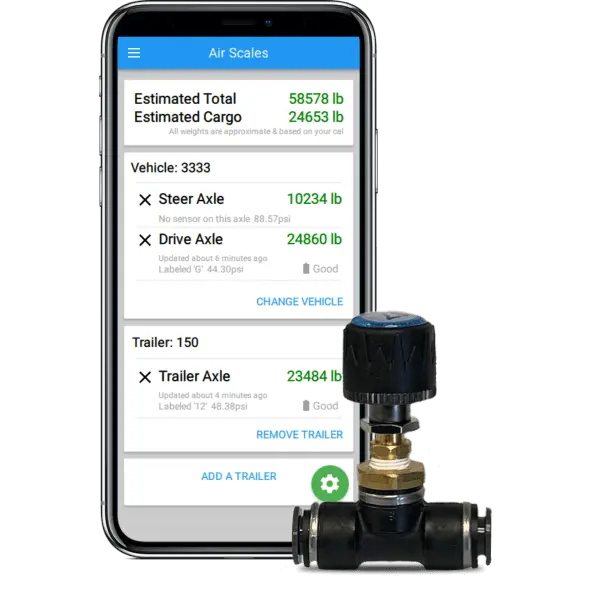Fair and honest weighing practices are fundamental for commodity haulers to get paid fairly, but scale fraud is emerging as a significant issue. These wrongful practices impact profitability and trust in an industry that plays a pivotal role in the global economy. This blog post aims to shed light on the main issues surrounding scale fraud and provide practical solutions for carriers to safeguard their interests.
Understanding Scale Fraud
Scale fraud in the trucking industry occurs when the weight of a commodity is intentionally misrepresented. This can happen in several ways:
Tampering with Truck Scales
In some cases, unscrupulous individuals or shippers may tamper with the truck scales themselves, adjusting them to display lower weights than the actual load. This allows carriers to transport more goods without being paid the appropriate fees based on weight. This form of scale fraud requires technical knowledge and skills to manipulate the scale mechanisms without arousing suspicion.
Incorrect Weight Declarations
Carriers may engage in truck scale fraud by intentionally misrepresenting the weight of the cargo on shipping documents. By underreporting the weight, carriers can avoid paying higher fees or taxes associated with heavier loads. This form of truck scale fraud is often facilitated through collusion with shippers or freight forwarders who provide inaccurate weight information to carriers.
Collusion
Collusion between carriers, shippers, and weighing personnel can lead to scale fraud. In these cases, individuals involved in the weighing process work together to manipulate the recorded weight, ensuring that it aligns with the desired outcome. This could involve bribing weighing personnel, providing false documentation, or using unauthorized methods to alter the weight readings.
These fraudulent practices not only compromise the integrity of the trucking industry but also have serious implications for carriers, shippers, and the overall supply chain. It is crucial for carriers to be aware of these deceptive tactics and take proactive measures to prevent and detect scale fraud.
By implementing stringent weighing protocols, investing in high-quality and tamper-proof truck scales, and utilizing onboard scaling technology and GPS tracking, carriers can minimize the risk of scale fraud. Additionally, educating and training staff on ethical practices and fraud awareness can help create a culture of integrity within the organization.
Implications for Carriers
The impact of scale fraud on carriers is extensive and can have devastating effects:
Financial Losses
Inaccurate weighing practices can result in carriers being underpaid for the commodities they transport, directly impacting their profitability and bottom line.
Legal Consequences
Engaging in, or falling victim to, scale fraud can lead to serious legal challenges, including fines and sanctions. It is important for carriers to adhere to honest weighing practices to avoid legal repercussions.
Reputation Damage
Being associated with fraudulent activities can tarnish a carrier's reputation, leading to a loss of trust and potential business opportunities. Maintaining a strong reputation for integrity is crucial in the trucking industry.
By understanding the gravity of these consequences and taking proactive measures to prevent truck scale fraud, carriers can protect their financial interests, comply with regulations, and maintain a positive reputation within the industry.
Preventative Measures
To combat scale fraud, carriers must adopt a multifaceted approach. Here are some additional details on each of the strategies mentioned.
1. Invest in Quality Weighing Equipment
Investing in high-quality weighing equipment is crucial to prevent scale fraud. Carriers should ensure that their truck scales are not only highly accurate but also tamper-proof. This means using truck scales that have built-in security measures to prevent unauthorized adjustments or tampering. Regular maintenance and calibration of truck scales are also essential to ensure their accuracy over time.
2. Implement Rigorous Procedures
Establishing strict weighing protocols is vital to deter scale fraud. Carriers should have clear guidelines and procedures in place for weighing cargo, including who is responsible for conducting the weighing and how it should be done. Transparency and verifiability are key, so carriers should ensure that the weighing process is well-documented, with records kept of each weighing transaction.
3. Utilize Technology
Technology can be a powerful tool in the fight against scale fraud. Carriers should consider adopting digital solutions like wireless onboard truck scales for immutable record-keeping. Technology ensures that weighing data is secure, transparent, and tamper-proof, making it extremely difficult for fraud to occur unnoticed. Additionally, using GPS and telematics can help track cargo weights throughout the journey, providing real-time data and alerts if any discrepancies are detected.
4. Educate and Train Staff
Regular training on ethical practices and fraud awareness is essential for all staff involved in the weighing process. Carriers should educate their employees about the various forms of scale fraud, how to detect it, and the potential consequences. By creating a culture of integrity within the organization, carriers can foster an environment where fraudulent practices are discouraged and promptly reported.
5. Collaboration and Reporting
Carriers should actively collaborate with industry associations to stay informed about fraud trends and share best practices. By participating in industry initiatives, carriers can gain valuable insights into emerging fraud schemes and preventive measures. Additionally, carriers should be vigilant and report any suspected fraud to the relevant authorities. Reporting fraudulent activities not only helps combat industry-wide issues but also protects the interests of carriers and promotes a more trustworthy environment.
By adopting these strategies, carriers can significantly reduce the risk of truck scale fraud, protect their financial interests, comply with regulations, and maintain a positive reputation within the trucking industry. It is through collective efforts and a commitment to ethical practices that the industry can effectively tackle the challenge of truck scale fraud.
Stay vigilant, stay informed, and drive your business forward with integrity.




